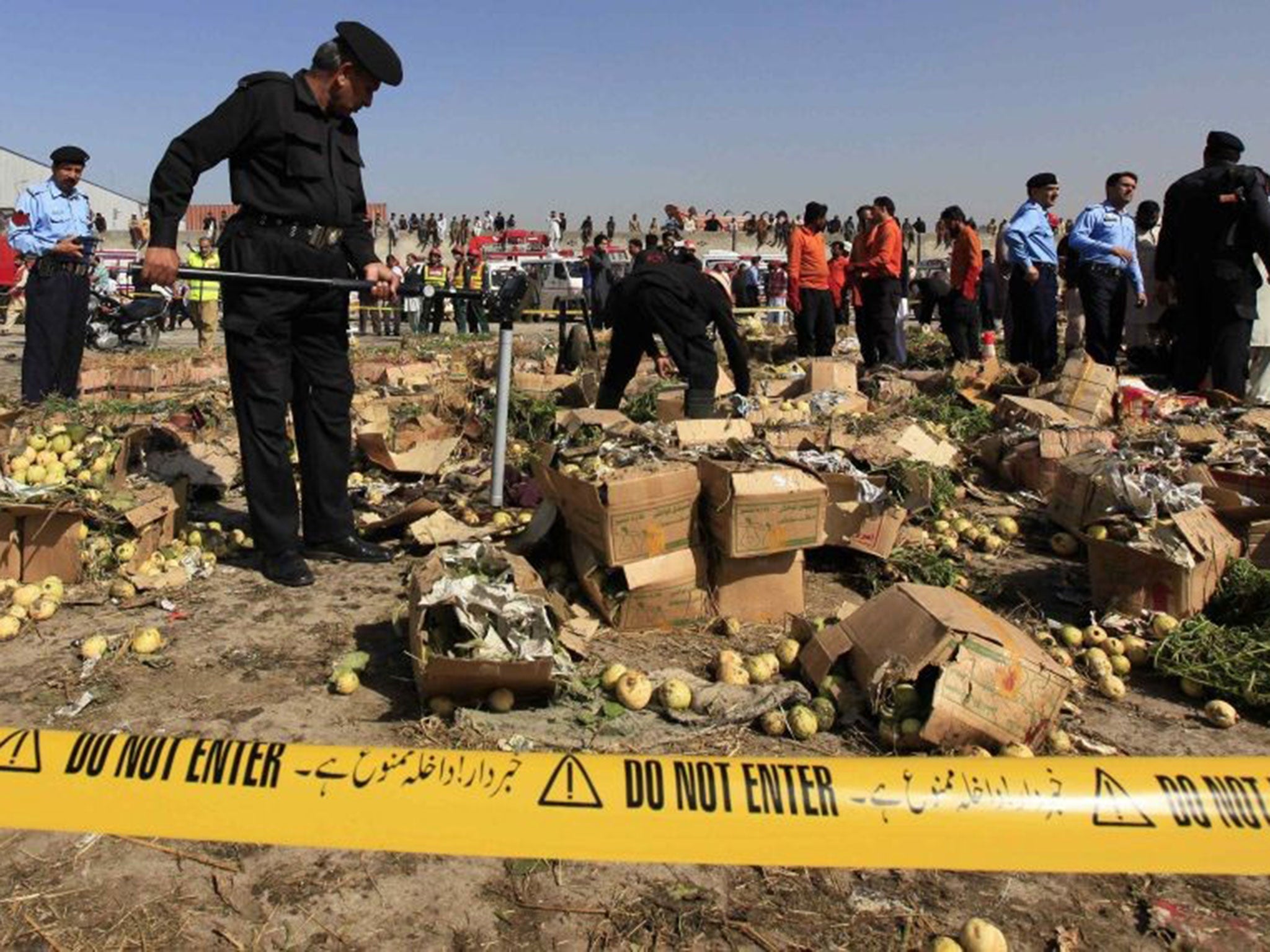Pakistan market bomb blast kills 20 and inures 70 at Islamabad market
Police said the bomb had been hidden in a box of guava fruit

Your support helps us to tell the story
From reproductive rights to climate change to Big Tech, The Independent is on the ground when the story is developing. Whether it's investigating the financials of Elon Musk's pro-Trump PAC or producing our latest documentary, 'The A Word', which shines a light on the American women fighting for reproductive rights, we know how important it is to parse out the facts from the messaging.
At such a critical moment in US history, we need reporters on the ground. Your donation allows us to keep sending journalists to speak to both sides of the story.
The Independent is trusted by Americans across the entire political spectrum. And unlike many other quality news outlets, we choose not to lock Americans out of our reporting and analysis with paywalls. We believe quality journalism should be available to everyone, paid for by those who can afford it.
Your support makes all the difference.A deadly bomb exploded at a vegetable market on the outskirts of the Pakistani capital on Wednesday, killing at least 20 people and injuring about 70 in the deadliest attack in Islamabad in several years.
Police and hospital officials confirmed the attack occurred after weeks of preliminary talks with the main Islamist militant grouping battling the state, the Pakistani Taliban.
The Taliban denied responsibility for the blast. Last week they extended a ceasefire until 10 April.
Police said the bomb had been hidden in a box of guava fruit and went off as traders assembled for fruit auctions.
Severed body parts and bloodstained clothes were scattered throughout stalls at the market between Islamabad and its twin city of Rawalpindi.
"Body parts went everywhere and even hit other people on the head," one market worker said.
Bloody sandals lay amid boxes of straw and damaged fruit in the mud. Police waved metal detectors over boxes while dazed vendors sat in the wreckage.
Javed Akram Qazi, vice chancellor of the Pakistan Institute of Medical Sciences, said 18 bodies had been brought in to his hospital. Earlier, he had said 23 people were killed but later said authorities had been confused in their reporting.
Another hospital had received two bodies, and about 70 people were injured, said Minister of Health Saira Afzal Tarar.
Rawalpindi is home to the headquarters of the military but the blast occurred far from any army buildings.
The Pakistan Taliban condemned the attack and blamed it on "hidden hands".
"The deaths of innocent people in attacks on public places are saddening," the group's spokesman, Shahidullah Shahid, said in a statement.
"Such attacks are wrong and against Islamic law."
The Taliban regularly bomb schools, marketplaces and public transport and authorities say they have killed tens of thousands of Pakistanis during these attacks.
In talks with representatives of the government, the Taliban have demanded the release of hundreds of prisoners and the withdrawal of the army from some semi-autonomous ethnic Pashtun regions where militants shelter along the border with Afghanistan.
The Taliban are fighting to overthrow Pakistan's democratically elected government and impose a strict form of Islamic law.
Additional reporting by Reuters
Join our commenting forum
Join thought-provoking conversations, follow other Independent readers and see their replies
Comments